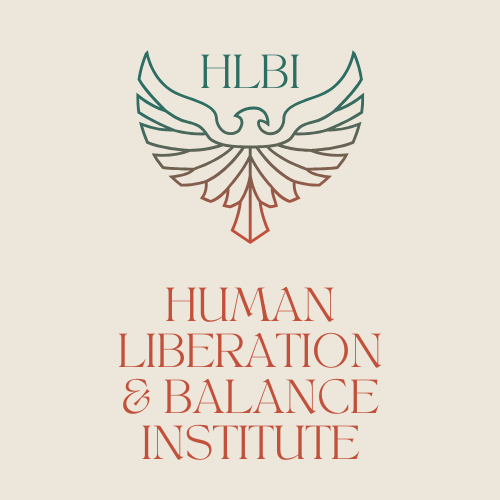
PHYSICAL HEALTH & WELL-BEING
Physical health and well-being encompass our body's ability to function effectively and maintain balance. It requires regular exercise, proper nutrition, adequate sleep, and the prevention or management of illness. This domain emphasizes the importance of adopting healthy habits to support our overall vitality, resilience, and longevity, ensuring that we can engage fully in daily activities and achieve a balanced, fulfilling life. Maintaining physical health is closely linked to our emotional, mental, and social well-being, highlighting the interconnectedness of all aspects of life.
Featured Articles & Research
Balanced Nutrition
Nutrition fuels every bodily function, impacting our energy levels, immunity, and even our mental health. A balanced diet focuses on whole foods, like fruits, vegetables, lean proteins, and whole grains, while minimizing processed foods and sugars. This approach not only supports our physical health but also reduces the risk of chronic diseases like diabetes and heart disease.
Nutrition Source Harvard
Harvard's Nutrition Source dives into how proper nutrition impacts our physical and mental health, focusing on balanced eating to prevent chronic diseases, maintain weight, and improve our longevity. This a comprehensive resource for understanding the scientific basis behind nutrition guidelines.
Why It’s Reputable Harvard Nutrition Source provides evidence-based nutrition information, backed by leading experts and research from the Harvard T.H. Chan School of Public Health, providing practical guidance for improving diet and overall health.
Nutrition and Our Heart
The AHA discusses the connection between our diet and heart health, offering resources for finding heart-healthy options to reduce our risk of cardiovascular disease. They emphasize the benefits of nutrient-dense foods, whole grains, and healthy fats.
Why It’s Reputable The American Heart Association is recognized for its evidence-based guidelines, cutting-edge cardiovascular research, and commitment to educating the public on heart health and preventing cardiovascular disease.
CDC Nutrition Page
The CDC’s nutrition page emphasizes how balanced eating supports our health at every stage of life, highlighting practical recommendations for fruit and vegetable intake, healthy fats, and whole grains. They also provide tools for meal planning and dietary assessments.
Why It’s Reputable
The CDC is a national leader in public health, providing evidence-based research and strategies for improving community health and preventing disease.
WHO Nutrition
The WHO provides global guidelines on healthy eating, explaining how balanced nutrition is essential for our growth, immune support, and chronic disease prevention. Their resources cover everything from nutrient intake to the role of diet in addressing our global health challenges.
Why It’s Reputable The World Health Organization is a trusted global health authority that provides guidelines, research, and policies aimed at improving health systems and outcomes worldwide.

Regular Exercise
Regular exercise is fundamental for maintaining our physical and mental health, as it strengthens our cardiovascular system, improves our muscle and bone health, and supports a healthy weight. It also enhances our mental well-being by reducing stress, boosting mood, and improving our cognitive functioning, contributing to a more balanced and resilient life.
Nutrition and Physical Activity Resources
Harvard’s extensive resources cover the importance of maintaining our physical health to reduce our risks of obesity, heart disease, and mental health issues. Their sections on diet, sleep, and exercise include detailed, research-backed strategies to achieve optimal physical well-being.
Why It’s Reputable The Harvard T.H. Chan School of Public Health is a leader in public health research, evidence-based practices, and contributions from world-renowned experts. Its work is grounded in rigorous science, advancing global health through education, innovation, and advocacy.
Division of Nutrition, Physical Activity, and Obesity
The CDC’s resources discuss how physical activity and balanced nutrition are vital for reducing our risks of chronic illnesses, boosting our immune function, and supporting our mental health. They offer practical guidelines on recommended levels of activity and tips for a balanced diet.
Why It’s Reputable The CDC is a national leader in public health, providing evidence-based research and strategies for improving community health and preventing disease.
Physical Activity and Health
The WHO explains the broad impact of our physical health on our mental health, chronic disease prevention, and our quality of life. They provide guidelines on maintaining physical activity, balanced nutrition, and good sleep to prevent conditions like cardiovascular disease and diabetes.
Why It’s Reputable The World Health Organization is a trusted global health authority that provides guidelines, research, and policies aimed at improving health systems and outcomes worldwide.
Health and Wellness
In this article, the Mayo Clinic explains how physical activity and diet influence our immune health, mental clarity, and emotional resilience, with comprehensive sections on different forms of physical activity, stress reduction, and balanced nutrition.
Why It’s Reputable The Mayo Clinic is a reputable source of information because it is one of the world's leading nonprofit medical institutions, renowned for its commitment to evidence-based medicine, rigorous research, and patient-centered care. Its expert contributors include highly qualified physicians, scientists, and healthcare professionals who adhere to stringent standards of accuracy and reliability.
Healthy Living Resources
The AHA highlights the role of physical health in our cardiovascular health and overall longevity, with guidelines for physical activity and tips on heart-healthy nutrition. Their resources emphasize the critical role of regular exercise and balanced eating for a strong foundation of physical health.
Why It’s Reputable The American Heart Association is recognized for its evidence-based guidelines, cutting-edge cardiovascular research, and commitment to educating the public on heart health and preventing cardiovascular disease.

Quality Sleep
Quality sleep is pivotal for our mental and physical restoration, enhancing everything from our immune function to our emotional resilience and cognitive clarity. During deep sleep, our bodies repair tissues, balance hormones, and consolidate memories. Poor sleep, however, is linked to higher risks of health issues like obesity, cardiovascular disease, and diabetes.
Sleep Science
The SRS provides research-backed information on sleep health, sleep disorders, and the latest in sleep science.
Why It’s Reputable The Sleep Research Society is a trusted source, dedicated to advancing sleep science through rigorous research, professional collaboration, and promoting evidence-based knowledge to improve sleep health globally.
Sleep Health
The ASA provides resources about sleep health, sleep disorders, treatment options, and tips for improving our sleep quality.
Why It’s Reputable
The American Sleep Association is a trusted source, providing evidence-based information on sleep disorders and health, guided by medical professionals and dedicated to advancing awareness and education about sleep.
Sleep Resources
The NSF offers comprehensive resources on sleep health, including tips on good sleep hygiene, sleep disorders, and sleep recommendations by age.
Why It’s Reputable
The National Sleep Foundation is backed by decades of research, expert contributions, and its mission to improve public understanding of sleep and its impact on overall health.
Healthy Sleep
Harvard's Healthy Sleep program offers detailed information on the science of sleep, the effects of sleep deprivation, and tips for getting better rest.
Why It’s Reputable Harvard Medical School’s Division of Sleep Medicine is a leading authority in sleep science, combining cutting-edge research, expert education, and a commitment to advancing the understanding of sleep's role in health and disease.
Brain Basics: Understanding Sleep
The NIH offers educational materials on the science of sleep, sleep disorders, and the importance of sleep for our brain health.
Why It’s Reputable The National Institutes of Health (NIH) is recognized as the U.S. government’s leading biomedical research agency. It advances medical knowledge through rigorous scientific research, expert collaboration, and its commitment to improving public health worldwide.
Sleep and Sleep Disorders
The CDC provides scientifically backed information about sleep, its fundamental role in maintaining our health, and statistics on sleep disorders in the U.S.
Why It’s Reputable The CDC is a national leader in public health, providing evidence-based research and strategies for improving community health and preventing disease.
Improving Sleep
This professional organization is dedicated to the science of sleep medicine; offering information on sleep-related research, guidelines, and resources for improving our sleep.
Why It’s Reputable The American Academy of Sleep Medicine is a respected organization, setting clinical standards and promoting evidence-based practices in sleep medicine through research, education, and accreditation of sleep centers.
National Institutes of Health
The National Heart, Lung, and Blood Institute (NHLBI) reveals the impact of sleep deprivation on our heart and lung health, sleep disorders, and strategies for healthy sleep.
Why It’s Reputable The National Institutes of Health (NIH) is a highly reputable source, recognized as the U.S. government’s leading biomedical research agency. It advances medical knowledge through rigorous scientific research, expert collaboration, and its commitment to improving public health worldwide.

Stress Management
Stress management is fundamental to maintain both our physical health and overall wellbeing. Chronic stress leads to a number of health issues, including heart disease, weakened immunity, and digestive problems. By effectively managing our stress, we can improve our mental clarity, reduce the risk of these health concerns, and enhance our overall quality of life.
Mental Health Stress & Coping
The CDC provides resources on stress and its impact on our health, as well as coping strategies, including physical activity, relaxation techniques, and social support.
Why It’s Reputable The CDC is a national leader in public health, providing evidence-based research and strategies for improving community health and preventing disease.
Centers for Disease Control and Prevention - Stress and Coping
Health & Stress
This resource focuses on complementary and integrative approaches to our stress management, covering techniques like yoga, meditation, and breathing exercises.
Why It’s Reputable The National Center for Complementary and Integrative Health (NCCIH) is a reputable source for research-based information on complementary and integrative health practices, advancing scientific understanding and promoting informed decision-making for improved health and well-being.
National Institutes of Health - National Center for Complementary and Integrative Health (NCCIH)
Understanding Stress Related Illness
The ADAA provides resources on understanding and managing our stress, including techniques like cognitive-behavioral therapy(CBT), and mindfulness.
Why It’s Reputable
The Anxiety and Depression Association of America (ADAA) is a trusted resource for evidence-based information on anxiety, depression, and related disorders, supported by mental health professionals and a dedication to education, research, and treatment.
Mental Illness and Stress
NAMI offers guidance on managing our stress, highlighting practical steps for reducing our daily stressors and adopting healthier routines.
Why It’s Reputable The National Alliance on Mental Illness (NAMI) is a respected organization dedicated to improving the lives of individuals affected by mental illness through advocacy, education, support, and resources informed by research and lived experiences.
Stress and Physical Health
The NIMH offers information about stress, its effects on our mental and physical health, and techniques to manage it better, including practical tips for identifying and coping with stressors.
Why It’s Reputable The National Institute of Mental Health (NIMH) is a leading authority on mental health, known for its cutting-edge research, evidence-based resources, and commitment to understanding, preventing, and treating mental health disorders.
Stress
The APA provides research-backed resources on stress management techniques, including cognitive behavioral approaches, mindfulness, and other effective coping strategies.
Why It’s Reputable The American Psychological Association is a leading organization of psychologists, providing evidence-based insights on mental health and well-being.
Stress Management
The Mayo Clinic offers evidence-based techniques for stress management, including mindfulness, deep breathing, and physical activity, and explains how stress impacts our overall health.
Why It’s Reputable The Mayo Clinic is a trusted source due to its commitment to evidence-based medicine, expert contributors, rigorous research, and patient-centered care, supported by a long history of advancing medical knowledge.
American Institute of Stress
The AIS provides extensive resources on stress management, including articles, research findings, and practical tips for managing our stress through physical, mental, and collective approaches.
Why It’s Reputable The American Institute of Stress is a reliable resource for understanding and managing stress, offering evidence-based information, tools, and education grounded in scientific research and professional expertise.
Health Topics: Stress
Harvard’s Medical School offers a variety of articles and resources on stress reduction techniques, including mindfulness, and relaxation strategies.
Why It’s Reputable Harvard Medical School - Stress Resources is a trusted source for evidence-based information on stress management, offering insights grounded in cutting-edge research and expert guidance to promote health and resilience.

